DHDD Newsletter – September 2021
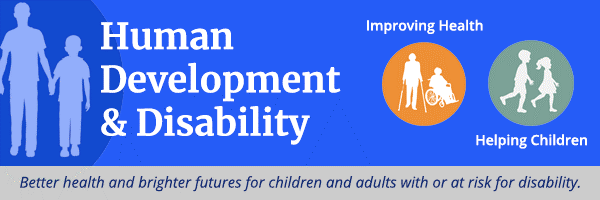
A Note from the DHDD Director:
Dear DHDD Colleagues,
I hope you are well and staying healthy. I hope you have seen the newest information on booster shots here. Please share this information with your networks.
I also wanted to share some news with you all. I have been asked to be the Acting Director for the Immunization Services Division (ISD) at CDC’s National Center for Immunization and Respiratory Diseases. This detail began on September 13. In this role, I am leading the transition and integration of the Vaccine Task Force work with the ongoing work of the Immunization Services Division, including the work related to critical and hard to reach populations including people with disabilities. Dr. Blythe Ryerson has graciously agreed to take on the role of Acting DHDD Director in my absence. I appreciate your understanding, support, and flexibility as I navigate these requests. We have accomplished a great deal together over the past year and look forward to our continued collaboration
Sincerely,
Georgina
In the Spotlight
Exceptional Parent Magazine Features CDC Efforts to Help Parents, Family Members, and Caregivers Talk about COVID-19
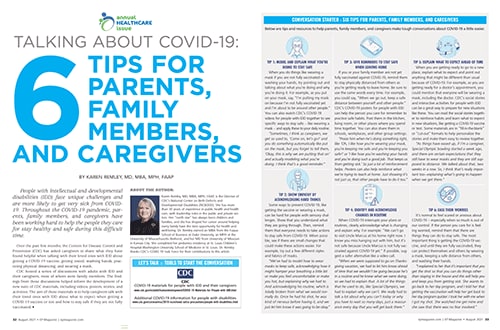
People with intellectual and developmental disabilities (IDD) face unique challenges and are more likely to get very sick from COVID-19. Throughout the COVID-19 pandemic, par¬ents, family members, and caregivers have been working hard to help the people they care for stay healthy and safe during this difficult time. Read more on Exceptional Parent Magazine recent issue and share with your networks!
Project Successes from Previously Funded State Disability and Health Programs
CDC would like to thank the State Disability and Health Programs from the 2016 – 2021 funding cycle for their work to improve the health and quality of life among people with disabilities. Please click here to learn more about project successes achieved by each State Disability and Health Program during the 2016 – 2021 funding cycle.
New Resources
New Health Equity Guiding Principles for Inclusive Communication

In an effort to build a healthier America for all, CDC developed the Health Equity Guiding Principles for Inclusive Communication.
The Guiding Principles is intended to help public health and healthcare professionals–within and outside CDC–ensure their communication products and strategies meet the specific cultural, linguistic, environmental, and historical needs and priorities of each population or audience of focus
Accessible Resources from the Center for Inclusive Design and Innovation

Over the past year, CDC provided technical assistance to Georgia Institute of Technology’s Center for Inclusive Design and Innovation (CIDI) on several COVID-19 related activities. CIDI conducted several informative webinars on inclusive design and accessible communications that are available for viewing here.
Build Back Better Act
On September 10, 2021, the House Committee on Education and Labor voted to advance its portion of the Build Back Better Act. This portion of the act includes universal pre-k for 3- and 4-year-old children, lower costs for childcare, repair of school facilities, investment in child nutrition programs and more. There is also language to strengthen inclusion of children with disabilities.
Promoting Children’s Emotional Well-Being and Resilience – New Tools

Children and youth are typically resilient to everyday stressors. But they are dealing with new challenges due to COVID-19. The disruptions in learning, missed significant life events, and changes in school and at home brought on by the pandemic can make young people especially vulnerable to feeling stressed, anxious, or depressed. For some children, particularly Black and Hispanic children, these challenges are made worse by the disproportionate impact of COVID-19 on their communities. To help youth cope with the challenges brought on by the pandemic, the National Academies of Sciences, Engineering, and Medicine, with support from the CDC, developed a series of tools that teach healthy ways to deal with stressful situations. They are meant for teens to use, as well as for parents and children to use together. The tools include web-based, short, interactive videos and graphic novel-style documents. They are based on cognitive behavioral therapy strategies for reducing stress and anxiety. The tools include scenarios from children’s daily lives that will help them cope with the COVID-19 pandemic and with other challenges in their current lives and in the future. The tools are available for free, in English and Spanish, to youth, parents, educators, and other professionals working with young people.
AAP Releases Flu Campaign Toolkit – New Resources
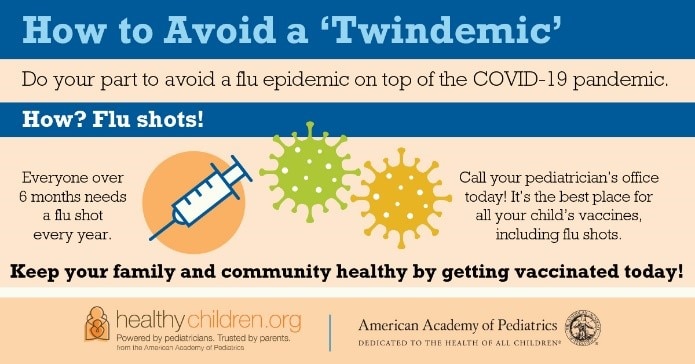
Flu season is upon us. According to the CDC, while seasonal influenza (flu) viruses are detected year-round in the U.S., flu viruses are most common during the fall and winter. The timing and length of flu seasons can vary, but flu activity often begins to increase in October and peaks between December and February.
With support from CDC, AAP has developed a Flu Campaign Toolkit with messages, materials, graphics, fact sheets, social media messages, and more! You can use these resources to spread the word about the importance of getting the flu vaccine. Please share with your networks!
Publications
New Report: Mental Health and Substance Use Among Adults with Disabilities During the COVID-19 Pandemic — United States, February–March 2021
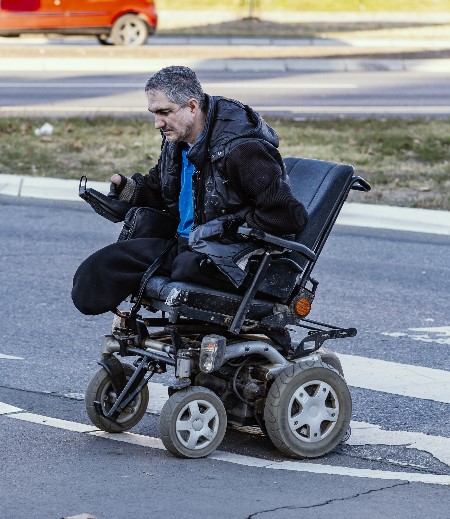
A new CDC report, Mental Health and Substance Use Among Adults with Disabilities During the COVID-19 Pandemic — United States, February–March 2021, found nearly two-thirds of adults with disabilities reported symptoms of at least one mental health condition or substance use in the past month. U.S. adults were surveyed online during February–March 2021 to assess their mental health and substance use during the COVID-19 pandemic. Overall, 64% of adults aged 18 and older with disabilities reported mental health symptoms, such as anxiety or depression or substance use, compared with 36% of adults without disabilities. Even more alarming, serious thoughts of suicide were more than twice as high among adults with disabilities than those without disabilities. Improving access to medical care for adults with disabilities, including screening and support services for mental health and substance use, can improve their health during emergencies such as the COVID-19 pandemic.
New study finds 1 in 3 children don’t get enough sleep

A recent MMWR published data from 2016-2018 showing that 1 in 3 children slept less than recommended for their age. Children from racial and ethnic minority groups, in households with lower incomes, and with special health care needs were more likely to get less sleep than recommended. Children who get insufficient sleep are at increased risk for injuries and poor mental, developmental, and physical health. Children with regular bedtimes were more likely to get enough sleep than children with inconsistent bedtimes. Public health practitioners and healthcare providers can help parents understand the importance of getting the recommended hours of sleep, support parents in implementing consistent bedtimes, and investigate disparities that affect sleep.
Disability Scoop Article Features CDC’s COVID-19 Resources for People with Intellectual and Developmental Disabilities
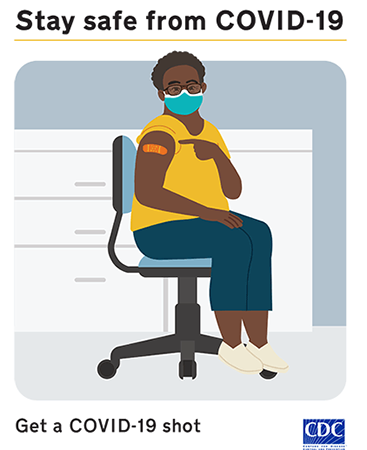
As the delta surge renews concerns about COVID-19 across much of the country, CDC is taking steps to help people with intellectual and developmental disabilities understand and protect themselves against the virus. Disability Scoop has featured a brief article on this work.
New Report: Disparities in COVID-19 vaccination status, intent, and perceived access for non-institutionalized adults, by disability status
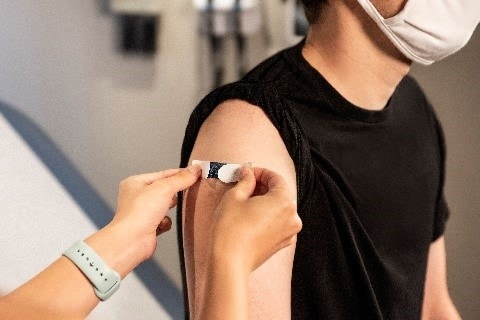
A new CDC report found that COVID-19 vaccination coverage was lower among U.S. adults with a disability than among those without a disability, even though these persons reported less hesitancy to get vaccinated. Unvaccinated adults with disabilities were more likely than were those without a disability to think that the vaccine is important protection, indicating that there might be potential for increasing vaccination coverage in this group. However, adults with a disability expected or reported more difficulty obtaining a COVID-19 vaccination than did those without a disability. Public health efforts that make COVID-19 vaccination information, scheduling, and sites more easily accessible for persons with disabilities might help to address health inequities and increase vaccination demand and coverage.
Lower cognitive scores among toddlers in birth cohorts with acute respiratory illnesses, fevers, and laboratory-confirmed influenza
A study by CDC and colleagues on Acute Respiratory Illnesses (ARIs) and fevers found that both during infancy were associated with lower Bayley cognitive scores. Children with laboratory-confirmed influenza illnesses during the first year of life scored lower in their second cognitive tests than those without influenza, but this difference was not statistically significant. Children who had laboratory-confirmed influenza before their second year of life, however, had significantly lower cognitive scores when controlling for ARIs and country. It is unclear if children with lower cognitive scores catch up to their peers after 24 months of age.
Reading proficiency trends following newborn hearing screening implementation
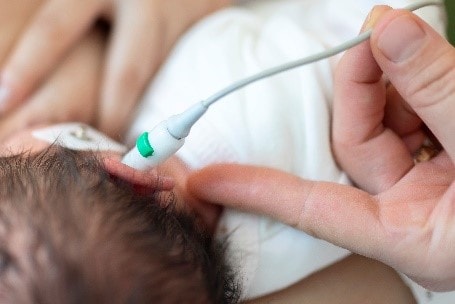
A new study looked at reading proficiency results from the Colorado Student Assessment Program among school-aged children who are deaf or hard of hearing. The test years included children born before and after implementation of Universal Newborn Hearing Screening (UNHS) and Early Hearing Detection and Intervention (EHDI) in an urban Colorado school district. Findings showed that reading proficiency significantly improved for each group of children following implementation of UNHS/EHDI. This study is the first to demonstrate long-term improvement in reading proficiency over time among children with hearing loss, as UNHS/EHDI programs were being implemented.

